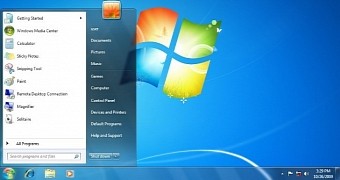While all eyes are on Windows 9 and the improvements that it brings to the desktop, Microsoft is also making changes to the whole Windows OS lineup.
Next month, Windows 7 will officially reach its end of sales date, meaning that OEMs will no longer receive this operating system from Microsoft and will have to switch to a newer Windows version for their computers.
Microsoft’s Windows lifecycle fact sheet indicates that Windows 7 Home Basic, Home Premium, and Ultimate will no longer be pre-installed on new computers, while Windows 7 Professional will continue to be available on OEM devices.
As ZDNet notes, Microsoft is yet to decide a date when Windows 7 Professional will reach end of retail software sales, but an announcement on this should come soon.
Windows 7 PCs won’t disappear all of a sudden
Even though Microsoft will no longer provide OEMs with Windows 7 copies for the devices they make, this doesn’t necessarily mean that all PCs running this particular operating system will disappear all of a sudden.
OEMs and retailers will continue to sell devices powered by the retired versions of Windows 7 until they run out of stock, and then Microsoft will not replenish their inventory and thus encourage them to switch to a newer OS version.
Windows 7 is at this point the world’s number one desktop operating system and the main alternative for those who buy a new Windows 8 PC and aren’t satisfied with the updated platform.
Many choose to downgrade from Windows 8 to Windows 7, and in order to avoid the trouble with this whole process, some decide to buy a PC powered by the latter from the very beginning.
Windows 7 end of support in January 2015
This has nothing to do with Microsoft’s planned end of support for Windows 7, and even if the company stops providing OEMs and retailers with copies of the operating system, you will still get updates and security patches for the products you buy.
Windows 7 will reach end of mainstream support on January 13, 2015, but the end of extended support will only take place on January 14, 2020, so computers will remain updated for at least five more years.
And still, Microsoft warns that when a Windows version reaches end of sales, it’s already recommended to consider an upgrade to a newer release, just to make sure that your computer is fully up to date.
“End of sales refers to the date when a particular version of Windows is no longer shipped to retailers or Original Equipment Manufacturers (OEMs). Examples of OEMS are Dell and Toshiba—PC manufacturers who often preinstall Windows software. When a version of Windows reaches its end of sales date, it's a good time to think about upgrading,” the company explains.
Needless to say, Windows 7 will remain the world’s number one operating system for many years from now and is very likely to become the new hard-to-kill Windows XP.

 14 DAY TRIAL //
14 DAY TRIAL //